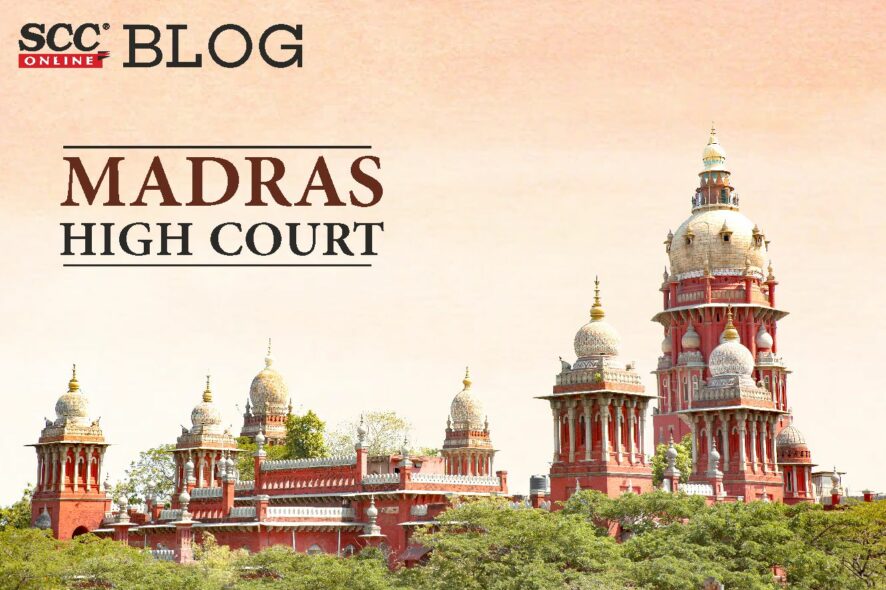Madras High Court: In a criminal appeal filed challenging the extension of the remand period from 90 days to 180 days and for grant of bail to the appellants, P.N. Prakash and RMT Teekaa Raman, JJ. held that for extending the period of remand, materials must be placed before the court to show the progress of the investigation and reasons for the remand or extension of remand; and it was reiterated that the ‘indefeasible right’ of the accused to be released on bail is a right which is enforceable by the accused only from the time of default till the filing of the challan and it does not survive or remain enforceable on the challan being filed.
The Court noted that the ninety days remand envisaged by Section 167 of Code of Criminal Procedure was to expire on 31.12.2021 and anticipating that it would not be possible to complete the investigation before the date, the public prosecutor filed a report under the first proviso to Section 43-D(2) of Unlawful Activities Prevention Act (‘UAPA’) for the extension of the remand period. The Special Court by order dated 03.01.2022 accepted the report of the public prosecutor and extended the remand to a further period of 90 days from 31.12. 2021.Further, the appellants submitted that the order dated 03.01.2022 was passed without hearing the accused.
The Court on perusal of the relevant records has observed that the report under first proviso to Section 43-D(2) of UAPA has been filed by the public prosecutor, therefore, the contention of the appellants that Special Public Prosecutor had not filed any report in terms of proviso to Section 43-D(2) is factually incorrect.
The Court placed reliance on the decision in Selvanathan v. State, 1988 SCC OnLine Mad 335 wherein it was held that “the accused will not be entitled to a copy of the requisition for remand” and observed that when a request for remand under Section 167 of CrPC with a report is filed by the public prosecutor under the proviso to subsection (2) of Section 43-D of UAPA, for extending the period of remand, materials must be placed before the court to show the progress of the investigation and reasons for the remand / extension of remand, and for this several material particulars and trajectory of the investigation would be disclosed including the names of some suspects whom the investigation agency would have to nab. Further, if the copies of these documents are furnished to the accused, then, it would be easy for those who are in the radar to just escape from the clutches of law.
It was also viewed that the decision in Hitendra Vishnu Thakur v. State of Maharashtra, (1994) 4 SCC 602 wherein it was stated that the accused would be heard, has been reviewed by a Constitution Bench of the Supreme Court in Sanjay Dutt v. State through CBI, Bombay (II), (1994) 5 SCC 410, wherein the Court has held that “the requirement of notice to the accused before granting the extension for completing the investigation is not a written notice to the accused giving reasons therein and production of the accused at that time in the court informing him that the question of extension of the period for completing the investigation is being considered, is alone sufficient for the purpose, further, it was also held that the ‘indefeasible right’ of the accused to be released on bail is a right which ensures to, and is enforceable by the accused only from the time of default till the filing of the challan and it does not survive or remain enforceable on the challan being filed”. It was observed that the Special Court has substantially complied with the directions of the Supreme Court in Sanjay Dutt’s case (supra).
The Court observed that the NIA completed the investigation and filed a final report on 29.03.2022, and on the same day, the appellant filed an application seeking default bail. The present appeal challenging the order dated 03.01.2022 has been filed only on 04.04.2022. Therefore, after the filing of the final report on 29.03.2022, the indefeasible right for default bail stood extinguished.
Placing reliance on the ruling in State of Punjab v. Okara Grain Buyers Syndicate Ltd., (1964) 5 SCR 387 wherein it was held that “even if the language used in the two enactments were identical which is not even the case here the same conclusion would not necessarily follow having regard to the differing scopes of the two pieces of legislation” thus, the observations in Sanjay Kumar Kedia v. Narcotics Control Bureau, (2009) 17 SCC 631 cannot be mechanically applied to the present case. Thus, the criminal appeals were dismissed being devoid of merits.
[T. Keeniston Fernando v. State of Madras, 2022 SCC OnLine Mad 4771, decided on 28.09.2022]
Advocates who appeared in this case:
For Appellants: Advocate. Radhakrishnan
Advocate P. Pugalenthi
For Respondents: Special Public Prosecutor R. Karthikeyan







